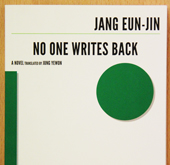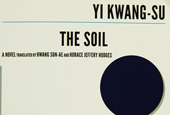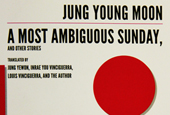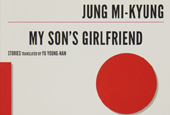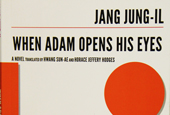-
 Korea.net's 24-hour YouTube channel
Korea.net's 24-hour YouTube channel- NEWS FOCUS
- ABOUT KOREA
- EVENTS
- RESOURCES
- GOVERNMENT
- ABOUT US
- 한국어
- English
- 日本語
- 中文
- العربية
- Español
- Français
- Deutsch
- Pусский
- Tiếng Việt
- Indonesian
Every country has its own set of prison stories and Kim Dong-In’s (1900-1951) “Lashing: Notes from a Prison Journal” is one of many of Korea’s collective memory of imprisonment, physical imprisonment or otherwise.
Published in 1946, this story is set during the Japanese colonization of Korea. The story unfolds from the point of view of those who called for independence. Told from the point of view of one of the prisoners, it makes the story all the more poignant and realistic.
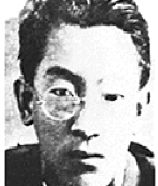
Author Kim Dong-In (1900-1951). (photo courtesy of http://www.ktlit.com)
“Kishou!” author Kim skillfully begins the story with a scream. An unfamiliar word which means "wake up" in Japanese, it immediately jolts you from the beginning, which is actually just the start of one of many occasions this story will stun the reader. It is then that the reader realizes that the story begins unusually with the unfamiliar and the sudden, like being woken up abruptly.
The narrator, himself a prisoner arrested for participating in the March 8 independence movement, tells of the daily life of prisoners during the Japanese period in Korea. As the narrator describes to us in vivid detail the seemingly mundane happenings in prison—the sardine-like way the prisoners are stuffed inside the prison, the making of different animal shapes from leftover rice out of boredom, the suffocating heat, the simple longing for a cool splash of water and the simple joy of bathing once every ten days—we begin to feel the same sort of hopelessness, such as in this passage:
"Every day after eating my lunch and drinking a bowl of fishy-smelling water, I found amusement in escaping the prison officers’ watchful eyes. I’d pull the rice bowl toward me pick out the remaining grain and start to knead it. This was the only entertainment allowed us. We were bored stiff, suffocated. Conversation was forbidden. Lack of materials stifled our will to daydream. By the time the grain turned dark with dirt, it had become a piece of rice cake dough. Sometimes the dough turned into a dog, sometimes a pig, sometimes a guard, before finally being tossed into the toilet…"
.jpg)
“Lashing: Notes from a Prison Journal” is part of a series of modern Korean novels translated into English by the Literature Translation Institute of Korea.
The real trouble begins when an old man from Yeonwon receives his verdict of 90 lashes, which he refuses for fear of death at his age. Instead, he sends an appeal, much to the irritation of his fellow prisoners who look forward to one less warm body in the crowded prison.
After pressure from the narrator as well as fellow prisoners for the old man to cancel his appeal, the old man relents. The prisoners smile in satisfaction at the extra space they get once the old man leaves the prison, but the old man’s weak groans while he gets his lashing start to trouble the narrator.
Just when it seems that cruelty borne out of desperation gets the better of the narrator, hope springs. That is, just when the reader feels that there is no more hope for humanity, we see the narrator feel a tiny pang of guilt and remorse as he tries to hold back his tears. The redeeming quality of this seemingly hopeless story is the way hope springs suddenly, stunning the reader about the tiny space of goodness within the human heart.
As a Filipino reader whose country also experienced Japanese occupation (although ours was so much shorter than Korea’s), I couldn’t help but marvel at how this story resonates and parallels with other literary works I’ve seen from my country- the desperation, the betrayals, the hopelessness, and the accompanying flicker of hope among the characters. Although my knowledge of Korean history is not as deep as a Korean person’s, common points in our history bridge this gap and enrich my own interpretation of this story. Its “Korean-ness” notwithstanding, foreign readers like us can still appreciate this work, be it through our common history or our shared beliefs about quiet hope.
As a literary work, “Lashing: Notes from a Prison Journal” is a vivid storytelling of life as imagined in a part of Korean history. The descriptions of daily life are realistic enough to let the reader feel the difficulties, pains, cruelties and desperation of prisoners. It is also vivid enough to let the reader feel hope and a hint of redemption in the story’s main character, which translates to hope for humanity as well.
“Lashing: Notes from a Prison Journal” is part of a series of modern Korean novels translated into English by the Literature Translation Institute of Korea. It is available as an app or a PDF online for free.
To download, visit http://ebook.klti.or.kr/ebooks/m/20century.jsp.
Mitzie Correa
The Korea Blog’s Worldwide Korea Blogger










